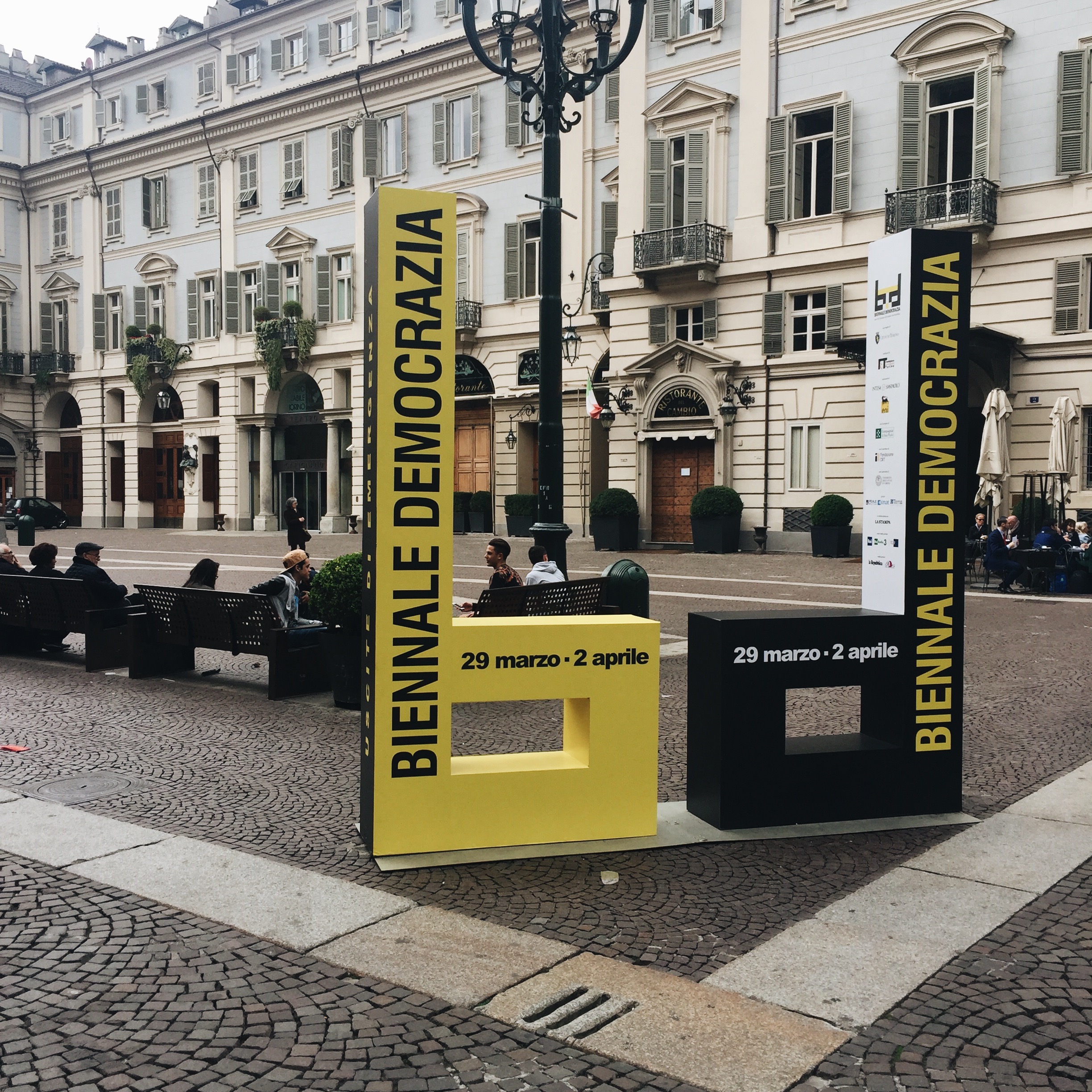Introducing the upcoming Biennial of Democracy in Turin

Every two years the city of Turin hosts the Biennial of Democracy, an event of conversation and debate, that seems to become more timely and necessary as years go by.
The current fifth edition will run from 29 March to 2 April, the theme is “EMERGENCY EXITS†and the programme looks particularly appealing. Here are our highlights:
The Sixth Extinction
Elizabeth Kolbert, Staff Writer at the New Yorker and author of the Pulitzer Prize-winning book “The Sixth Extinction: An Unnatural History”
Over the last half a billion years, there have been five mass extinction. Scientists around the world are currently monitoring the sixth one. The sixth extinction is likely to be mankind’s most lasting legacy; as Kolbert observes, it compels us to rethink the fundamental question of what it means to be human.
Emergencies on the Web. Hacking, Anonymous, Wikileaks
Gabriella Coleman, anthropologist and professor at McGill University in Montreal. Author of “Coding Freedom: The Ethics and Aesthetics of Hacking” and “Hacker, Hoaxer, Whistleblower, Spy: The Many Faces of Anonymous”.
In this golden age of whistleblowing and leaking, Anonymous has displayed a knack for fomenting controversy and drawing attention to its actions due to their reliance on these unconventional forms of Internet-based political dissent.
In her talk, Dr. Gabriella Coleman provides a history of Anonymous’ crucial role in establishing a novel style of hacking-for-leaking: public disclosure hacks.
Technologies of the Democratic City
Francesca Bria, researcher at Imperial College Business School and direct democracy specialist
Data and digital infrastructure are the next frontier of the urban democratic revolution. This is shown in Barcelona, a city that aims to give new responsibilities to its citizens, and to define and to defend new types of socio-economic rights. Technology is central to this, reducing the gap between the city administration and the citizens, but also reframing key issues: affordable housing, energy transition, smart mobility, and circular economy.
Islam, Secularism and Democracy
Olivier Roy, political scientist and professor at the European University Institute in Florence, Italy
The Arab Spring took place without appealing to religion, thus allowing Islamists in Egypt and Tunisia to get into power. But they both failed to islamise the constitution. On the contrary, the Tunisian parliament which has an Islamist majority, voted to introduce freedom of conscience in the constitution. The democratisation of politics goes therefore hand in hand with the diversification of the religious scene.
Internet & Democracy. An Ironic Inversion
Evgeny Morozov, writer and researcher from Belarus who studies political and social implications of technology, visiting scholar at Stanford University, and author of “The Net Delusion: The Dark Side of Internet Freedom and To Save Everything, Click Here: The Folly of Technological Solutionism.
For decennia, the internet has been hailed as an important force to achieve emancipation and democracy. Today an ironic inversion has taken place: the internet is blamed for the increase in extremism, for the growth of fake news, and for pervasive surveillance. Are these opinions justified? Morozov presents his reflection on the journey of the internet utopia of the nineties, to today’s reality of a highly centralised and feudal internet. Can a real digital democracy exist in a world in which internet users don’t control their own data or the infrastructures that produce them?
The (R)Evolution of Robotics and the Web: A New Industrial Revolution?
Evgeny Morozov, writer and researcher from Belarus who studies political and social implications of technology, visiting scholar at Stanford University, and author of The Net Delusion: The Dark Side of Internet Freedom and To Save Everything, Click Here: The Folly of Technological Solutionism.
Federico Pistono, writer and hactivist
Informatics and cybernetics don’t just affect communication, but also modify the means of production and the organisation of work. Will the worker still be central or will s/he have to cede ever more space to machines and data? What are the potentials and the limits, the good and bad in the future of work?
And more!
We also recommend the talks by Edward J. Blakely, former Executive Director of Recovery Management for the City of New Orleans; Josep Borrell Fontelles, Spanish politician and former President of the European Parliament; French political scientist Bernard Manin; German political scientist Claus Offe; Tariq Ramadan, professor of Islamic studies at Oxford University; Christiane Taubira, a Guyana-born French politician and former minister of Justice of France; and Italian political scientist Mario Telò.
All events are free, but you can choose to purchase a seat reservation for 5 euro.
We will come back with some updates later on!



